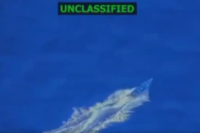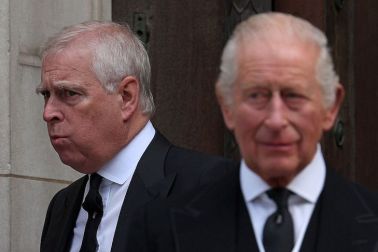Ever since 2013, I’ve been hearing that Vladimir Putin is going to die any day. Is Volodymyr Zelensky now trying to spin the same line? At a press conference this week, the Ukrainian President said of Putin, ‘He will die soon – that’s a fact – and it will all be over’, adding ‘I’m younger than Putin, so put your bets on me. My prospects are better.’
Admittedly, in actuarial terms, the 47-year-old Zelensky is likely to outlive the 72-year-old Russian leader. However, while the average life expectancy of someone born in the USSR in 1952, like Putin, is just 57, his grandfather Spirodon lived to the age of 86 and his father Vladimir Spirodonovich to 88. More to the point, Putin is cradled in the careful grip of the best medical care Russian science and Russian money can provide (and the best personal protection multiple Russian security services can provide, too).
These rumours, then, are driven by a mix of helplessness and hope
This might just have been Zelensky having a little fun at a sombre moment, highlighting the contrast between himself and the ‘grandpa in his bunker’ (as the now-dead opposition leader Alexei Navalny dubbed him). Yet it is unlikely that the media-savvy ex-comedian was also unaware that this would also set the rumour mills grinding again. Unsurprisingly enough, we’ve since had a stream of stories about Putin having Parkinson’s, or cancer, or a stroke, or whatever else, and that his death is imminent.
Indeed, Ukrainian military intelligence chief Kyrylo Budanov asserted in 2022 that he was simultaneously suffering from ‘several serious illnesses, one of which is cancer’ and would soon be dead. But he also claimed that a creeping coup was already underway which would lead to his replacement.
Really, this cottage industry in ‘Putin dying’ stories dates back to 2005, when a piece in the Atlantic claimed on the basis of TV footage that Putin had suffered a stroke that was going to lead to his imminent death. It was, however, in 2013 that things really took off. I remember being in Moscow at the end of that year and being confidently told by a defrocked Russian academic that Putin had cancer and would be dead in six months. The annexation of Crimea in February 2014 was then triumphantly presented as ‘proof’ of Putin making a final bid to shape his historical legacy before the end.
In the past eleven years, we have had claims of thyroid cancer and blood cancer, strokes major and mini, even leprosy, almost always said to be going to kill him within a mystical six months. Most dramatically, we had claims on the entertainingly bonkers Telegram channel ‘General SVR’ – which unconvincingly purports to be the inside insights of a general in Russia’s Foreign Intelligence Service – that Putin died of a heart attack in October 2023 and the country is being ruled through body doubles, while his corpse sits in a freezer in one of his palaces.
On one level, this can be discarded as nothing more than fringe journalistic froth, or the meanderings of outsiders trying to get attention by claiming secret inside knowledge. However, it also speaks to a sense of futility in the West. Blandishments and threats, overtures and sanctions all seem to have failed to influence Putin. As a result, the prospect of his death fuels daydreams about a deus ex machina resolution. It is hardly coincidental, I suspect, that these rumours really started to come thick and fast in 2014, the year when, as the West would frame it, Putin truly went rogue.
These rumours, then, are driven by a mix of helplessness and hope. What Zelensky may not fully appreciate is that it can also be used to justify inaction. If Putin is going to die soon, then why not wait and see if whoever replaces him is more amendable? With no anointed successor, and with most of the other real hardliners coming from the same homo sovieticus generation as Putin, this would be a toss of the coin, though.
It could be that he is replaced by someone equally hawkish, but younger, more energetic, smarter. Or – and I think this more likely – there will emerge a leader driven by kleptocratic greed rather than imperial paranoias. He (and it would be a he) may want to end the war but is unlikely to be willing or able to surrender the territory Russia has seized. More to the point, faced with a new leader offering a restart, perhaps to abandon Iran and North Korea, stop the disinformation and withdraw from Africa, the West might be more tempted to make a deal that throws Kyiv under the bus. Zelensky should be careful what he wishes for.








Comments